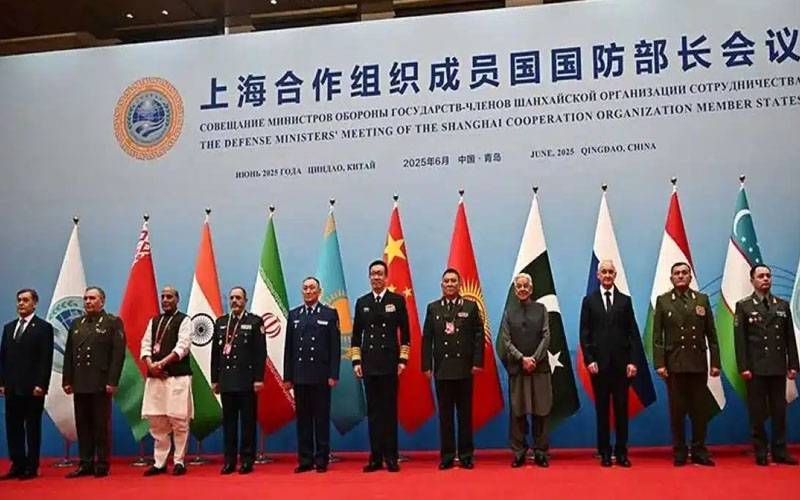BEIJING – Tensions flared at Shanghai Cooperation Organization (SCO) Defence Ministers’ meeting in China’s capital Beijing as Indian Defence Minister Rajnath Singh refused to sign joint communiqué, expressing strong displeasure over omission of Pahalgam incident and indirect accusations against India regarding Balochistan.
The high-level meeting saw participation from all SCO member states. Pakistan was represented by Defence Minister Khawaja Asif while India was represented by Rajnath Singh, and though seated at the same table, no bilateral meeting was scheduled or held between the two ministers.
Sources indicate that Singh was particularly angered by lack of mention of recent Pahalgam attack, an incident India views as critical to regional counterterrorism discourse. Moreover, joint statement reportedly included indirect allegations implicating India in fomenting unrest in Pakistan’s Balochistan province, a charge New Delhi categorically rejects.
This is not first time New Delhi walked away from multilateral communiqué. Lately, it also refused to endorse the BRICS joint declaration, citing similar concerns.
Meanwhile, India’s refusal to sign reflects broader shift in its diplomatic posture, marked by willingness to confront international narratives it deems unfavorable. Critics argue that such actions represent an unconstructive and isolating approach at a time when platforms like SCO and BRICS are striving to build consensus on peace, security, and regional cooperation.
SCO includes major regional players such as China, Russia, Pakistan, and India, was established to address shared security concerns and economic cooperation. Disagreements such as this risk undermining its broader mission, analysts warn.
As regional and global powers look to these forums for collaborative solutions to complex challenges, India’s stance may raise questions about its commitment to multilateralism, particularly in matters involving its neighbors.
The Story Behind Pahalgam: Is India Playing the Same Old Game?













